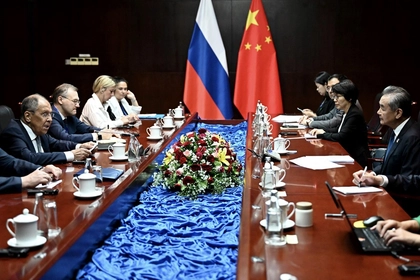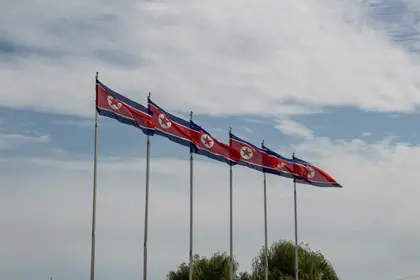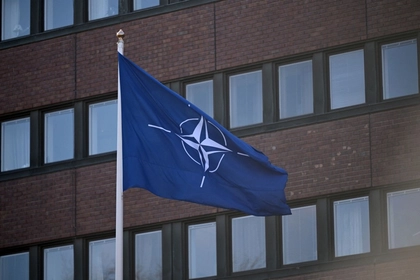Russia on Thursday blocked the renewal of a panel of UN experts monitoring international sanctions on North Korea, weeks after the body said it was investigating reports of arms transfers between Moscow and Pyongyang.
The move was met with a flurry of criticism, including by South Korea's foreign ministry, which said Russia had made an "irresponsible decision" despite its status as a permanent member of the UN Security Council.
JOIN US ON TELEGRAM
Follow our coverage of the war on the @Kyivpost_official.
The United States called the veto by Moscow a "self-interested effort to bury the panel's reporting on its own collusion" with North Korea.
"Russia's actions today have cynically undermined international peace and security, all to advance the corrupt bargain that Moscow has struck with the DPRK," State Department spokesman Matthew Miller said, referring to the North by its official name, the Democratic People's Republic of Korea.
Ukraine's Foreign Minister Dmytro Kuleba took to social media to call the veto "a guilty plea," amid allegations that Pyongyang is aiding Moscow in its war against Kyiv.
Moscow's veto at the Security Council does not remove the sanctions on North Korea, but spells the end for the group monitoring their implementation -- and myriad alleged violations.
The panel's mandate expires at the end of April.
North Korea has been under mounting sanctions since 2006, put in place by the UN Security Council in response to its nuclear program.

Russia, China FMs Meet as ASEAN Talks Get Underway in Laos
Since 2019, Russia and China have tried to persuade the Security Council to ease the sanctions, which had no expiration date.
The council has long been divided on the issue, with China's deputy ambassador Geng Shuang arguing Thursday that the sanctions "have exacerbated tensions and confrontation with a serious negative impact on the humanitarian situation."
China abstained rather than joining Russia in the veto. All other members had voted in favor of renewing the expert panel.
Russia's UN envoy Vasily Nebenzia said that without an annual review guaranteed to assess and potentially modify the sanctions, the panel was unjustified.
"The panel has continued to focus on trivial matters that are not commensurate with the problems facing the peninsula," Nebenzia said.
"Russia has called for the council to adopt a decision to hold an open and honest review of the Council sanctions... on an annual basis."
- Continued tests -
Additional Security Council sanctions were leveled on Pyongyang in 2016 and 2017, but the North's sanctioned nuclear and weapons development have continued.
Last week, Pyongyang tested a solid-fuel engine for a "new-type intermediate-range hypersonic missile," state media reported.
Recent cruise missile launches have prompted speculation that North Korea is testing those weapons before shipping them to Moscow for use in Ukraine.
In its latest report, issued at the beginning of March, the sanctions panel reported that North Korea "continued to flout" sanctions, including by launching ballistic missiles and breaching oil import limits.
It added that it is investigating reports of arms shipments from Pyongyang to Russia for use in Ukraine.
In August, Russia used its veto to end the mandate of a group of UN experts on Mali who charged that Moscow-linked Wagner mercenaries were involved in widespread abuses.
"We have now seen Russia use its veto to end two panels of experts due to its expanding military relationships," the United States, France, Japan, South Korea and Britain said in a joint statement.
In a separate statement, 10 Security Council members, including Britain, France and the United States, defended the sanction monitors' work.
"In the face of these repeated attempts to undermine international peace and security, the panel's work is more important now than ever before," it said.
You can also highlight the text and press Ctrl + Enter






